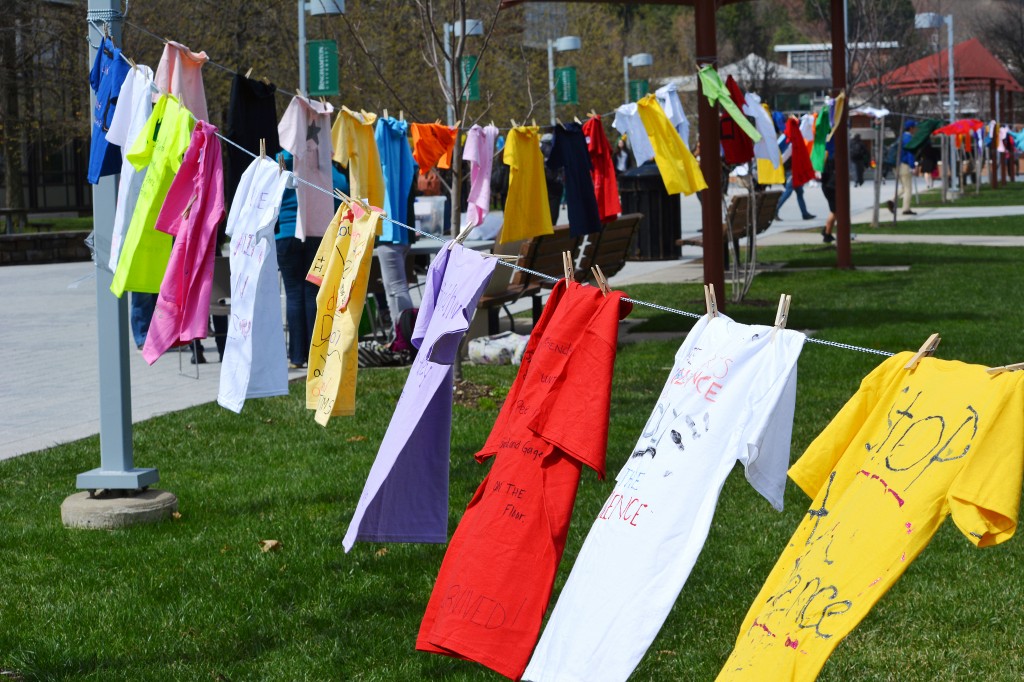
Every 1-2 minutes, a woman is raped. Before the age of 18, one in four girls and one in five boys will be victims of incest or sexual assault. The Clothesline Project is trying to change that.
The Clothesline Project is a worldwide project that was first started in 1990 by a group of women who hung laundry with messages combating violence against women, men and members of the LGBTQ community. Today, over 500 clotheslines have been hung internationally.
On Tuesday, Real Education About College Health (REACH) gave students the opportunity to hang T-shirts on three clotheslines throughout the Spine to commemorate those affected by violence. The color of each shirt represented different types of violence, including rape, incest and discrimination due to sexual orientation or political affiliation. T-shirts had messages such as “It took so many years for me to be this happy. It took only a rape to take it all away,” or, “Don’t stay a victim; find support and speak out.”
Amber Ingalls, a Decker health educator and Clothesline organizer, said that this year she decided to make the clothesline more like a memorial, unlike previous years’ tabling events.
“It’s a visual,” Ingalls said. “It’s looking at messages of people who were affected, whether they’re survivors or friends of people directly impacted.”
According to Samantha Brown, a REACH intern and freshman majoring in human development, society’s apprehension to discuss violence shows how important the issue is.
“People don’t understand and they don’t feel comfortable so we don’t talk about it, and then it keeps happening,” Brown said. “All these T-shirts — this is nowhere near the number of women and men that are abused every single year, absolutely nowhere close.”
She said the shirts displayed were a combination of those created this year and in years past. Participants were able to get free shirts from Ingalls’ office or, new to this year, write on paper shaped like T-shirts and pin them to the lines at the event. Approximately 30 shirts and 75 paper T-shirts from this year and about 75 shirts gathered from past years were displayed, Ingalls said.
Another new aspect was the use of different computerized sounds — gong to represent those battered, a whistle for those victimized by sexual assault or rape and a bell for those murdered — that played as frequently as each act of violence is committed.
Kyrie Kirn, an organizer of the event and a second-year graduate student studying student affairs, said she thought the clothesline raised awareness effectively on a busy school day.
“They might not take the time to stop and read every T-shirt,” she said. “But they’re going to walk past it and see that one says ‘No Means No’ or ‘It’s Not Your Fault’ and then maybe they’ll take some time to read some of the other ones.”
Megan Tedford, a senior majoring in psychology, said that she immediately noticed the shirts, and they reminded her that violence is not always obvious.
“It can happen to anyone and it happens more than you think,” she said. “You never know when you look at someone what they went through.”


